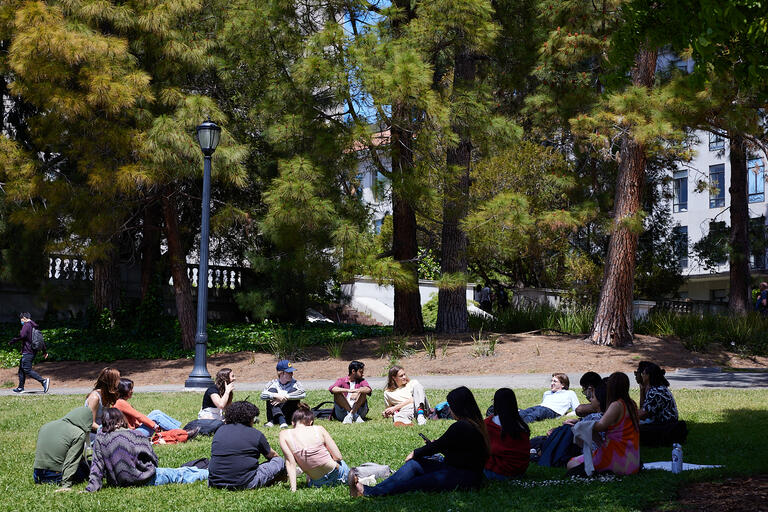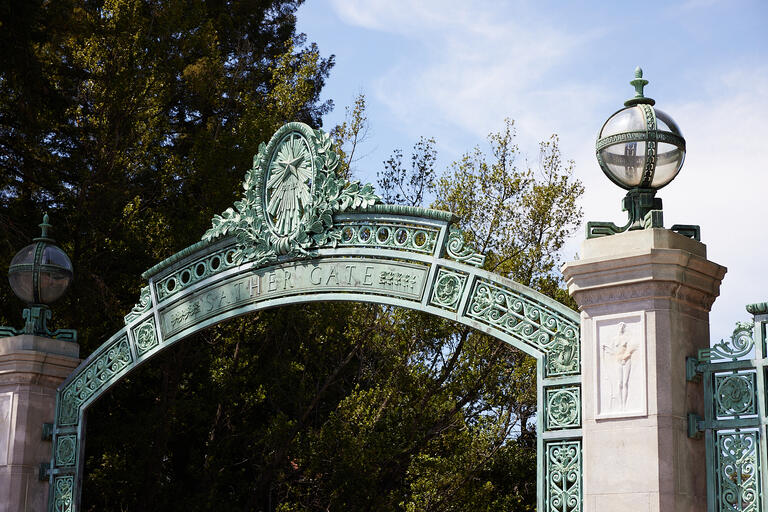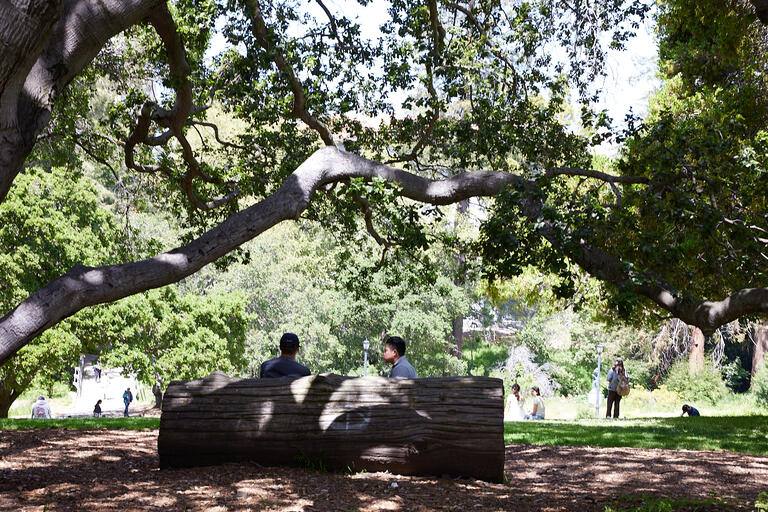
A multi-year recruitment program that is focused on interventions in our searches, hiring strategies, and faculty support for the 2023-2024 and 2024-2025 academic years.

For New Faculty:
For Departments:
For Current Faculty:

What is the Advancing Faculty Diversity in the Arts & Humanities Program?
The Advancing Faculty Diversity in the Arts & Humanities (AFDAH) Recruitment Program, led by Professor Donna V. Jones with support from Dean Sara Guyer and diversity leaders Dr. Alberto Ledesma and Dr. Maria Faini, focuses on transformative hiring practices and robust program evaluation during the 2023-2025 academic years. Building on a pilot program that strengthened connections to the UC President’s Postdoctoral Fellowship Program, AFDAH aims to advance faculty diversity by addressing challenges throughout the hiring process and fostering equity and inclusion in underrepresented fields of study.

Four Key Focus Areas
Recruitment
Recruitment of new faculty across departments focused in particular on clusters in African/African Diasporic Humanities and Latinx Cultural Expression:
The Division has prioritized hiring clusters of faculty members in underrepresented fields of study. AFDAH aims to recruit new faculty across departments in clusters focusing on African/African Diasporic Humanities and Latinx Cultural Expression. Hiring in these clusters will help us to address key gaps in areas where we have emerging student demand and an interest in developing larger curricular offerings that decenter dominant discourses.
Mentorship
Mentorship focused on career advancement at Berkeley, with a particular emphasis on milestones specific to the Arts & Humanities and tailored for those working in underrepresented fields:
Creating a culture of intellectual belonging is vital for the recruitment and retention of faculty in the humanities. This program identifies the core areas where new faculty need support in order to be successful and aligns both mentorship and funding support to them. We propose to develop a program whereby mentors guide new faculty through the career milestones of their first years as members of the ladder faculty. Mentorship and funding will be open to eligible faculty, advancing diversity, who start on campus or are recruited during the grant period.
This is a multiyear commitment with incremental developments that range from public presentation of papers, research and bibliographic support, preparing a book proposal, identifying appropriate presses and series, and networking with academic publishers. For scholars in the humanities, we encourage mentorship that includes the following assumptions and contributions: 1) Scholars working in fields that focus on minority communities, global archives and artifacts, and their attendant methodologies, in particular, will require competent mentorship from scholars in adjacent fields. 2) Departments play a role in mentorship by sponsoring workshops, symposia, or brown-bag lunches that amplify scholarship in underrepresented fields—workshops that put new scholars in dialogue with established scholars are especially encouraged. These gatherings foster interdisciplinary collaboration, but also accommodate the specific disciplinary, cultural, and structural concerns of departments.
Support
Support for research, course design, and service programs aligned with career advancement milestones, with a focus on faculty who are advancing diversity through their research, teaching, and service:
We intend to support each of the faculty members involved with AFDAH in their first years on campus by providing funding aligned with key career milestones in teaching or research identified through the mentorship program.
For research or creative projects, faculty may use these funds to launch their research, support the completion of a major project, purchase tools, rent space, hire a developmental editor, convene a manuscript or project review workshop, or hire a research/studio assistant or fulfill other needs related to their major milestone projects.
We also recognize teaching as an important and demanding component of early career advancement, and these funds also could be used to develop new courses and curricula, which is an important outcome of this hiring initiative.
Finally, we can imagine service, including the convening of conferences or working groups focused on strategies for mentorship, peer-to-peer (or horizontal) mentorship, or advocacy and community building, as other valuable ways these funds can be used.
Reflection
Reflection and evaluation, designed to identify and sustain elements of the program that can endure beyond the initial two-year initiative:
Tracking the short and long-term impacts of our AFD proposal is crucial to ensuring that we learn the most effective recruitment, mentorship, and career development practices for growing our division in ways that address the changes of our time. We have developed a robust reflection and evaluation plan for measuring three primary areas of impact we hope to achieve:
1. Influence of AFDAH priorities on recruitment across departments.
2. Greater inclusion of the PPFP program in hiring plans across departments.
3. Broader influence of AFDAH priorities on department hiring plans and processes.



